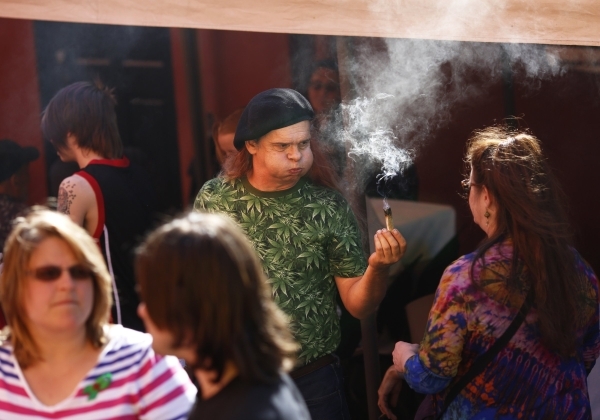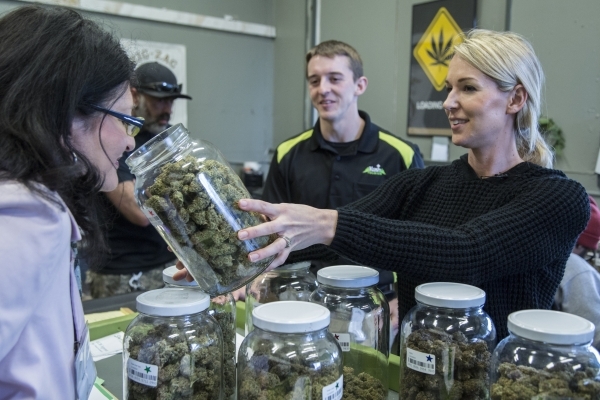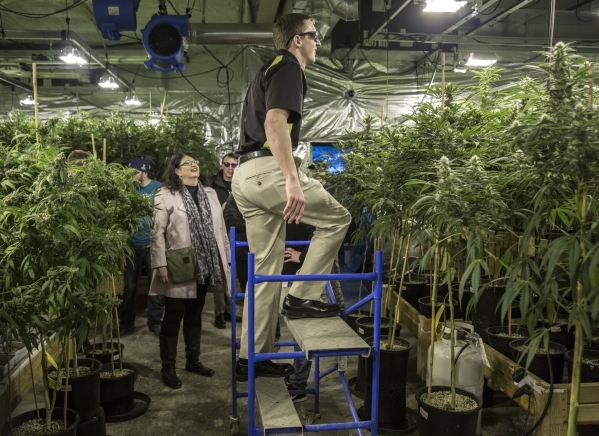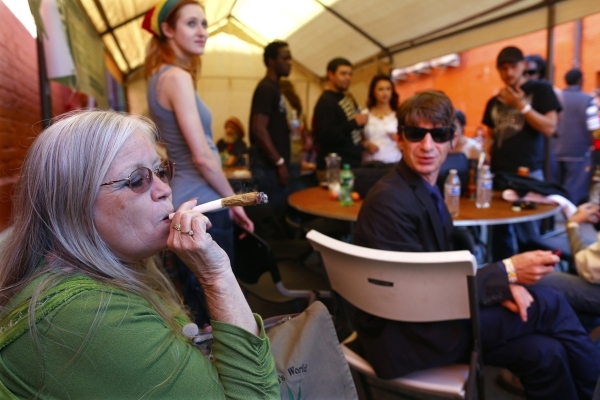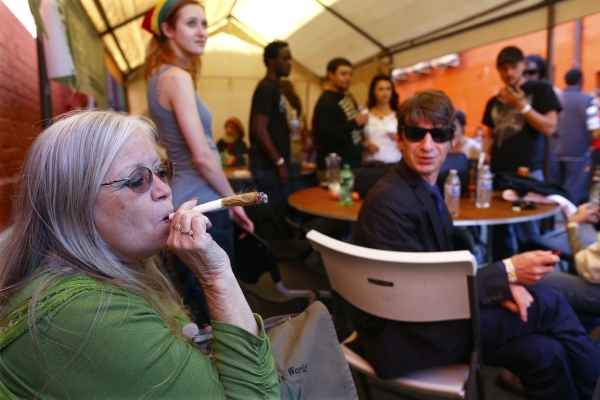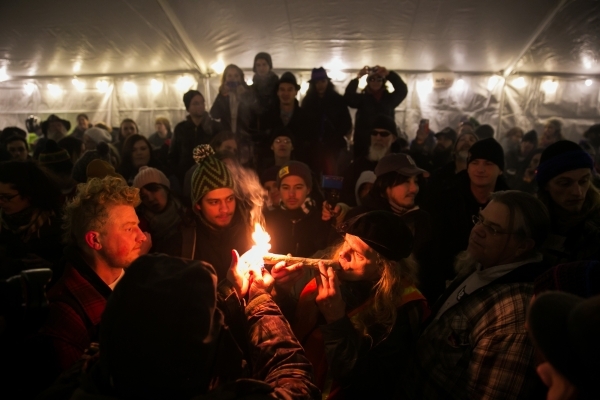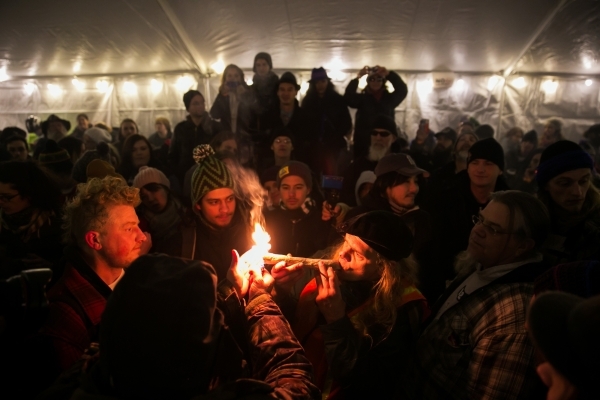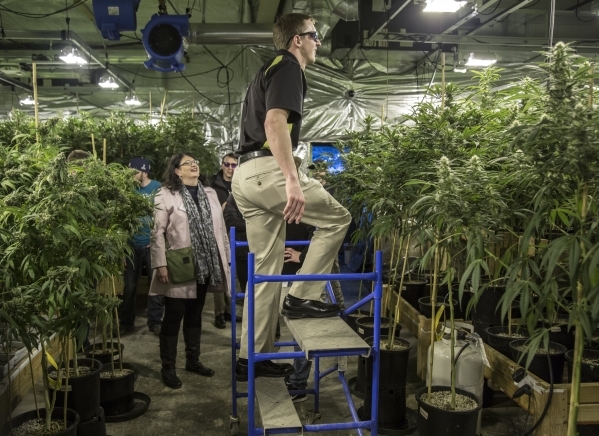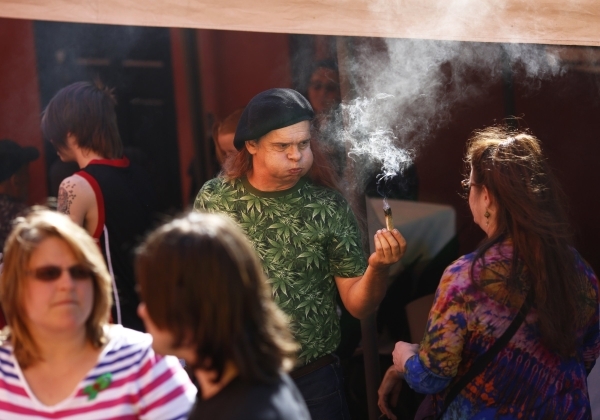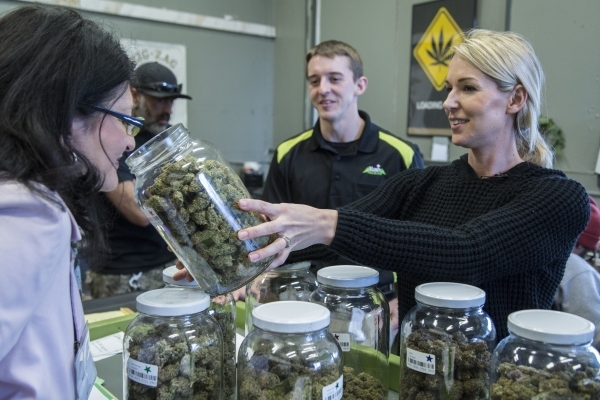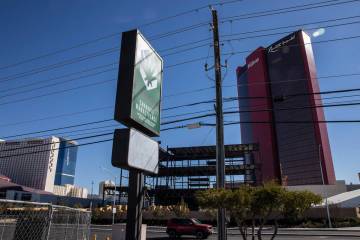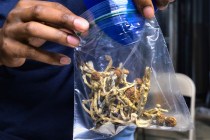Nevada fight for legal pot won’t be cheap — POLL
Nevada's medical marijuana industry has barely gotten off the ground. But already, people on both sides are quietly preparing for a public fight over what would be an even bigger revolution.
Voters will decide whether to legalize marijuana statewide through a question on the November 2016 ballot. If they approve the measure, Nevada would become the fifth state with fully legal marijuana.
Even with that vote almost a year away, proponents of legalization have hired veteran political strategists to lead a multimillion-dollar campaign. They will be ready for a full-scale fight. How much money will be put into the fight against legal pot is unclear, however.
"That's the $64,000 question," said state Sen. Tick Segerblom, one of the most prominent supporters of legalization.
Joe Brezny, who led the effort to get the marijuana initiative on the ballot, said proponents expect to spend $2 million to $4 million on the campaign.
"We would love it if no one showed up to oppose us, but I don't think we'll get that lucky," he said.
They will have at least one opponent: a political action committee formed this year, the Coalition Against Legalizing Marijuana in Nevada.
Jeff Kaye, who founded the group, is a professional lobbyist for Red Rock Strategies in Las Vegas. But he said this issue is personal for him.
Kaye's firm works for prominent Republican elected officials, including U.S. Reps. Cresent Hardy and Joe Heck. It pushes conservative causes, including the 2004 ballot initiative that limited medical malpractice damages in Nevada.
Kaye declined to discuss money or strategy.
"We're just a grass-roots organization who are against drugs getting in people's hands," he said, adding that the campaign is at the planning stage.
Conflicting trends
Proponents have reason for confidence. Four states have legalized recreational marijuana in the past two years, and medical use is allowed in close to half of states, according to the Marijuana Policy Project.
Segerblom said the public view on marijuana "has flipped 180 degrees within a period of five years."
But Kaye pointed to Ohio voters' recent rejection of a ballot measure to legalize marijuana and warned proponents in Nevada shouldn't be too confident.
A bipartisan group will work to get legal pot passed in Nevada. The newly hired campaign manager is Sean Sinclair, a veteran political strategist who has worked for Harry Reid and other Nevada Democrats. Brezny worked for Republican Mitt Romney's presidential campaign.
When it comes to campaigns, Segerblom said, "You never know, so you have to be prepared. But at the end of the day, I wouldn't be surprised if this thing greases through."
If "IP 1," the initiative petition on marijuana, is OK'd by voters, the state will have two marijuana industries existing side by side.
The current medical industry would be joined by a new "recreational" one, also known by the more neutral term some proponents prefer: "adult use."
Every jurisdiction could have twice as many recreational pot shops as medical dispensaries.
In Clark County, that would mean up to 80 recreational shops alongside 40 medical dispensaries.
Growers could sell to both recreational and medical shops, and dispensary owners could be licensed for both. But the two kinds of marijuana would be taxed and regulated differently.
The medical side would remain under Division of Public and Behavioral Health supervision; recreational pot would be regulated by the Department of Taxation.
One key difference between the two types of marijuana: The medical kind would be cheaper.
The state would levy a 15 percent excise tax on the wholesale value of a cultivator's sale of recreational marijuana to a dispensary. That's lower than the tax in Colorado, Brezny said, adding that competition should help keep prices from getting too high.
For a grower, the initial recreational license fee would be $30,000, and the annual renewal fee would be $10,000. For a dispensary, those fees would be $20,000 and $6,600.
The taxes and fees would first pay for the state's enforcement and oversight, and the rest would go to a state education fund.
Matt Griffin, a lawyer who crafted petition language for the Marijuana Policy Project, told a crowd during a University of Nevada, Las Vegas forum that it was written to ensure it could be defended from campaign attacks.
That's one reason the petition says only existing liquor wholesalers could be licensed "marijuana distributors," or a middleman between growers and dispensaries.
That has led to allegations of favoritism. But Griffin told the crowd that without the "third tier" of middlemen, opponents could paint the proposed marijuana industry as more loosely regulated than alcohol.
204,000 signatures
After the petition was filed with the state in April 2014, backers gathered more than 200,000 signatures — far more than the 102,000 required to get it on the ballot. In December 2014, the secretary of state officially gave IP 1 a place on the 2016 ballot.
Brezny called the signature-gathering a "bootstrapping do-it-yourself campaign," as compared with the professional effort they will wage next year.
That bootstrapping could pay off in a big way. Proponents already have a head start on one of the biggest challenges for any campaign: finding people likely to support the cause.
"One of the advantages of having had to go out and gather 204,000 signatures is that we have 204,000 signatures," Brezny said.
Proponents are working to verify registered voters and load the information into a database.
Meanwhile, they're figuring out who to target with fundraising pitches. It's the behind-the-scenes stuff that pays off — or so they hope.
"This is the boring part of winning an election," Brezny said.
The terms of next year's debate probably will be familiar to anyone who's followed the marijuana issue in recent years.
Supporters think it's long past time to end a failed war on drugs and bow to reality, especially given that marijuana is widely considered less harmful than alcohol.
"It's already happening, so why not tax it, regulate it, test it?" Segerblom said.
On the other side, the Coalition Against Legalizing Marijuana called itself "a group of parents, public safety officials, doctors, teachers and concerned citizens" in its founding document filed with the state in February.
Kaye said his primary concern with legalizing marijuana is the effect on children.
"I can't figure out how it's in the best interest of Nevada to legalize a drug, to make it easier for kids to get a hold of," he said.
He pointed to cases in other states of legally purchased marijuana being resold to youngsters. He couldn't point to any statistics to show legalization will mean more children using but sees it as a common-sense equation: "It would be legal, so it's just going to permeate the culture more."
Leslie Bocskor, who runs a company that advises marijuana businesses, said legalization proponents need to counter that argument.
"I think that the message has to be one of law and order," Bocskor said. "This is the establishment of law and order in an area that has been lawless."
There long has been a saying that it's easier for a teenager to get weed than to get beer. And to legalization proponents, that's the point: When marijuana is illegal, the only people selling it are criminals.
Criminals will sell to anyone, Bocskor said, but a legal, taxed, regulated business that could be shut down at any time has an incentive to follow the rules.
Media campaigns
Pro-legalization ads won't start in earnest until two to three months before Election Day, Brezny said. Starting earlier would be too expensive and likely unproductive.
In the meantime, supporters will seek media coverage with celebrity endorsements. In other words, you can expect a lot of " ... comes to Vegas to push for legal weed" headlines.
With the usual print and broadcast ads, they will use social media and other Web marketing, in part because of the heavy support among younger people for legalizing marijuana.
It's hard to say how much anti-legalization advertising there will be, in part because it's not clear how much money that side will have to spend.
One wild card from close to home: Will casino magnate Sheldon Adelson, who spent millions to defeat legal medical marijuana in Florida, try to kill legal recreational weed in Nevada? Or will another backer with deep pockets?
Proponents think Nevada's experience with medical marijuana will help smooth the way for full legalization.
Segerblom said even Nevadans who might have been on the fence should be starting to see legal marijuana is not a big deal. Four dispensaries have opened in the Las Vegas area with no significant problems.
"Who would have thought 10 years ago that you could open and have marijuana being sold — and people wouldn't be going crazy?" Segerblom said.
Contact Eric Hartley at ehartley@reviewjournal.com or 702-550-9229. Find him on Twitter: @ethartley



